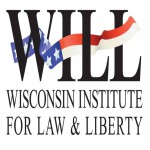WILL Appeals Religious Liberty Case to U.S. Supreme Court
Critical constitutional questions remain unresolved after Court of Appeals decision
The News: The Wisconsin Institute for Law & Liberty (WILL) filed a petition for writ of certiorari to the United States Supreme Court in St. Augustine v. Underly, urging the high court to review whether the Wisconsin Superintendent of Public Instruction violated the First Amendment when it withheld transportation benefits from an independent Catholic school unless it agreed not to call itself “Catholic.” The Seventh Circuit Court of Appeals issued a decision in December that DPI violated the law, but did not resolve the core constitutional questions of religious liberty at stake in the case.
The Quote: WILL Deputy Counsel, Anthony LoCoco, said, “The critical constitutional questions at the heart of this case remain unresolved. Government bureaucrats cannot withhold a benefit by imposing their own religious definitions on institutions like St. Augustine School.”
But St. Augustine is independent and unaffiliated with the Archdiocese. In this case, the school district and DPI determined the definition of Catholic and withheld government benefits until St. Augustine agreed not to call itself “Catholic.”
In Court: WILL filed this case in state court in August of 2016. It was removed to federal court where the United States District Court for the Eastern District of Wisconsin ruled against St. Augustine in June 2017. In October 2018, a three-judge panel at the Seventh Circuit Court of Appeals affirmed the lower court ruling 2-1. In a vigorous dissent Judge Kenneth Ripple warned that the decision “raises haunting concerns about the future health of the Religion Clauses [of the First Amendment] in this circuit.” The decision was also criticized in an article in the June 2019 edition of the Harvard Law Review.
WILL sought review at the United States Supreme Court in March 2019. The Court granted certiorari, vacated the decision of the Seventh Circuit Court of Appeals, and remanded the case back to the Seventh Circuit in July 2020 in light of the 5-4 decision in Espinoza v. Montana Department of Revenue. Espinoza held that a rule barring families from using a tax-credit scholarship to attend religious schools violates the First Amendment’s Free Exercise Clause.
The Seventh Circuit Court of Appeals decision, authored by Judge Diane Wood, makes clear that as a result of the Wisconsin Supreme Court’s 2021 decision, the Wisconsin Department of Public Instruction violated state law when it denied the families at St. Augustine school transportation benefits. But the Court did not resolve the core constitutional questions of religious liberty in its decision.
WILL is asking the U.S. Supreme Court to review, specifically, whether the Wisconsin Superintendent of Public Instruction violated the First Amendment when it determined the definition of Catholic and withheld government benefits from St. Augustine as a result.
Read More:
- Petition for Writ of Certoriari, March 25, 2022
Read and share this press release online.
NOTE: This press release was submitted to Urban Milwaukee and was not written by an Urban Milwaukee writer. While it is believed to be reliable, Urban Milwaukee does not guarantee its accuracy or completeness.
Mentioned in This Press Release
Recent Press Releases by Wisconsin Institute for Law & Liberty
WILL Wins Preliminary Injunction in Defense of 1st Amendment
Apr 7th, 2023 by Wisconsin Institute for Law & LibertyLawsuit is a part of WILL’s Preserving Democracy Project






















From reading the information in the release, WILL is trying to establish that a government body can not deny funding or government services to any group that declares itself as a religious entity. This would be that any group that said it was a “religious” entity could demand State funding under school choice. This entity would essentially be free on any of the usual accountability standards that go to entities that get government funding. This is simply an increase of taxpayer subsidy for religion when most dominations are continuing to lose membership and financial support.